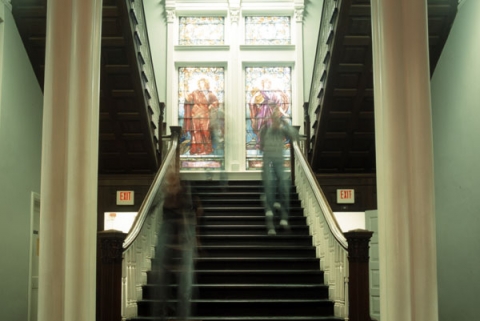CEPA Public Lecture: Fiery Cushman
How We Know What Not to Think
Harvard University
More Information
This lecture, and the reception to follow, is free and open to the public.
Lecture Abstract provided by Professor Cushman:
In the real world there is too much to think about. I will present several recent and ongoing research projects that each aim to understand how humans spontaneously decide what actions to consider—in other words, how we construct choice sets. A common theme among these studies is a key role for cached value representations. Additionally, I will present some evidence that moral norms play a surprisingly and uniquely large role in constraining choice sets and, more broadly, in modal cognition (i.e., reasoning about what is possible, likely, or desirable). This suggests a new avenue for understanding how morality influences our thought and behavior
About Professor Cushman:
Fiery Cushman is John L. Loeb Associate Professor of the Social Sciences at Harvard University, where he directs the Moral Psychology Research Laboratory. His research investigates the cognitive mechanisms responsible for human moral judgment, along with their development, evolutionary history, and neural basis.
Professor Cushman's research awards include the Stanton Prize by the Society for Philosophy and Psychology and the Daniel M. Wegner Theoretical Innovation Prize by the Society for Personality and Social Psychology. His research has been supported by the National Science Foundation, the Office of Naval Research, and the John Templeton Foundation. He is the author of more than 75 scholarly articles, book chapters, and essays, which have appeared in leading venues including Cognition, the Oxford Handbook of Moral Psychology, and the Routledge Handbook of Philosophy of the Social Mind.

